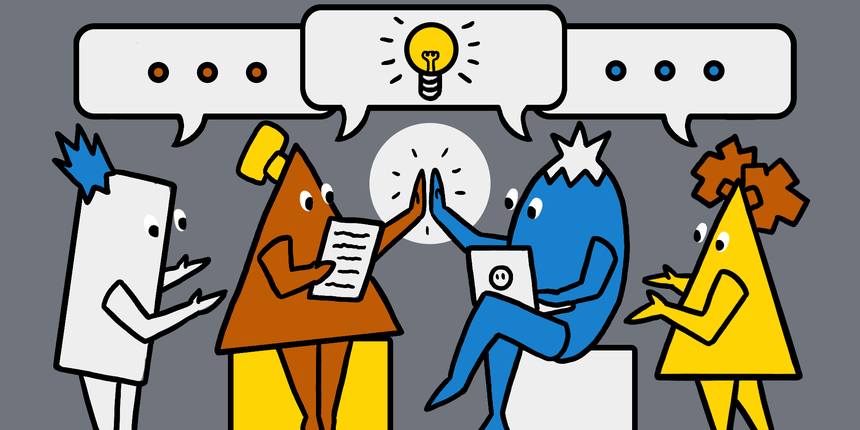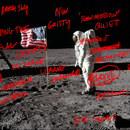How to create better work through collaboration
We share some takeaway tips from our collaboration masterclass with Future Learn

While our instincts are often to lead with our technical skills, one of the most important skills when working in creative teams is the invisible skill of collaboration. Knowing how to get the most out of your teammates can make all the difference when delivering the best possible project to your client and while there is a degree of intuition and emotional intelligence required, collaboration is a skill you can learn.
Remaining mindful of things like good communication, empathy, openness and what brings the best out of your team members can revolutionise the way you work and vastly improve the results you deliver to your clients.
Here are some key takeaways from our Creative Mindset series of online, on-demand Masterclasses with Future Learn on collaboration.
Get the most out of T-shaped workers
There are many theories for maximising potential in the workplace and one of these is the idea of ‘T-shaped’ - coined by IDEO CEO Tim Brown - people who are thought to work particularly well in creative teams. “T-shaped people are people who have their own skills and ideas, the downward stroke of the T and are also able to work with people across other disciplines, the horizontal stroke of the T, they have their own skills to contribute and value and respect the contribution of others,” explains Alison Coward.
Turn T shaped qualities into actions by:
-
Getting to know your team, their professional strengths and the tasks they love to do
-
Ensure all voices on the team have the opportunity to share and contribute
-
Dedicate some time in your kick-off meeting to build a connection with your fellow teammates
-
Facilitate good communication by being approachable
Be open during the creative process
Foster openness as a team member by encouraging others to come to you with potential problems early and maintain the flow of communication. Team members should be confident in being open about potential issues rather than ‘saving face’ by trying to solve them alone, this can help increase learnings for individuals and the group.
“[It’s] an openness on an individual level to share your thoughts and opinions on what you’re working on. Open up and share earlier and, one people will help you figure it out plus, two it will correct you before you’ve done the hard yards and got to what you think is the end. They’ll help you course correct,” says Damola Timeyin of Facebook and Instagram.
Ask for help when you need it
Assertiveness and dominating behaviour can feel good in the moment when you are trying to make your mark on a project, but you can miss out on important exchanges with your team if you don’t lay yourself open to constructive criticism and advice.
Make yourself vulnerable by being open or seeking help can feel awkward but by asking for help you are collaborating and by sharing problems you can solve as a team, sharing experience and contributing to the greater good.
“Vulnerability is an underrated strength, in terms of collaboration,” says Gerard Crichlow, strategist at IPG. “And collaboration is the secret sauce to coming up with innovative work.”
Have confidence in your skills and express yourself
Tell your team you are happy to be there and love the project. Bringing an energising passion to teamwork and it can bring out great things in your team.
Have confidence in your skillset and if you are new to a team don’t stay in the background, remember you have been chosen for a reason and vocalise your observations can offer insights. New voices and opinions can lift the energy of a team who have been doing the same job for a long time.
“When meeting people to see if they are going to become part of our team, especially on a creative project the things I would look for are: a confidence when talking about their craft and what they can bring to a project, a curiosity and excitement about the idea,” says Senior Producer at Punchdrunk Alex Rowse.
Step in when you see someone needs help
The workflow of a project is different for everyone and there will be pressure on different members of the team at different points of the process.
Step in to support someone who needs it when you can with advice, expertise or as a sounding board and you can make a huge difference to their experience. Once you help them get rid of that pressure the rewards are twofold: you strengthen the collaborative bond and they are free to perform at their best.
Rakesh Chadee, creative strategist and design director thinks that empathetic awareness of the needs of your team is essential for good collaboration. “I think everyone in that team goes beyond their job title so whatever you do best you need to support someone else where it’s necessary, “he explains. “You just step in and do that whether it’s moral support or a different perspective.”
Take the Creative Mindset: Collaboration course on Future Learn here. Discover more online learning with D&AD here. Discover more online learning with D&AD here.
Sign up now







